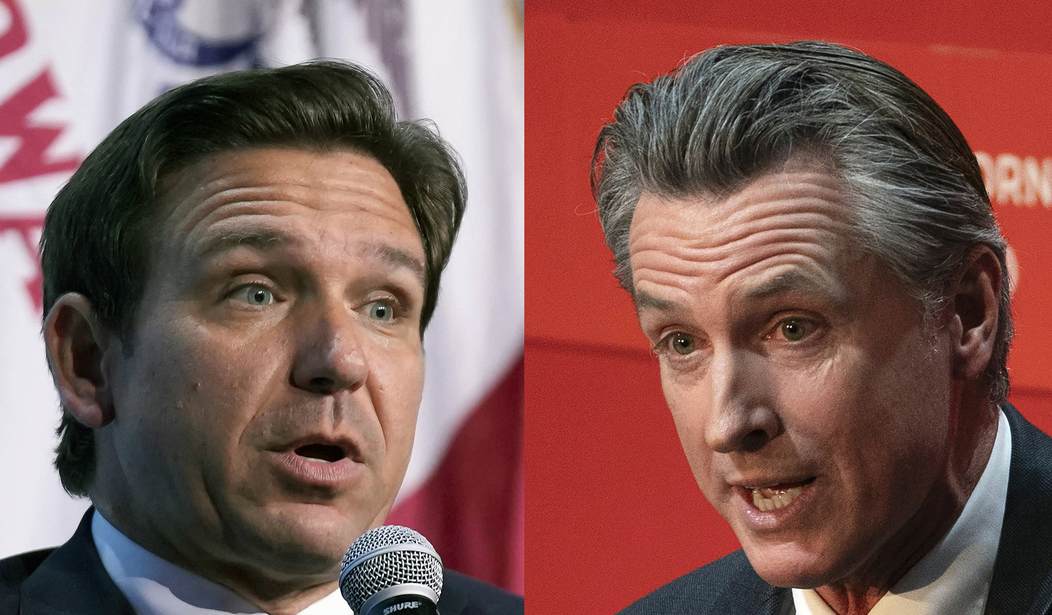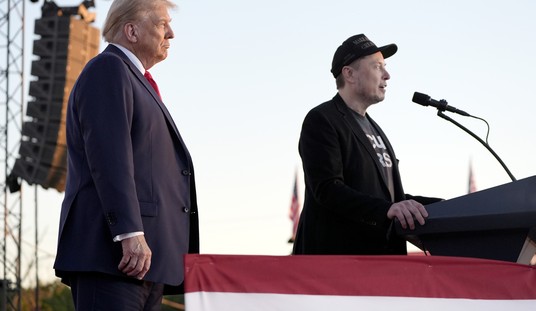I know we haven’t even reached the November election yet, but as we look ahead to the 2028 presidential race, it's important to note that both 81-year-old Joe Biden and 78-year-old Donald Trump would immediately become lame ducks upon being inaugurated. For this reason, the political landscape is already heating up with two prominent figures likely to clash: 45-year-old Florida Governor Ron DeSantis and 57-year-old California Governor Gavin Newsom.
In the event their respective political parties nominate these two diametrically different politicians, the country should brace itself for a political showdown like no other. DeSantis, revered for slashing red tape and championing business-friendly policies, starkly contrasts Newsom's extravagant, economy-strangling red and green tape mandates. As we gear up for this likely presidential race, expect a fierce clash of ideologies. And that is a good thing. This battle will highlight the starkly divergent paths of their states, presenting voters with a decisive choice for America's future. This is the race that some feel we should have had in 2024.
In the political arena, where business acumen often takes a back seat to ideological posturing, Florida Governor Ron DeSantis stands out as a champion of common-sense policies that foster a robust business environment. This starkly contrasts California Governor Gavin Newsom, whose policies, despite his business background, often appear disconnected from the realities of running a profitable enterprise. Without a direct business background, DeSantis exhibits an intuitive understanding of what businesses need to thrive, positioning him as a superior leader for economic growth.
DeSantis' administration has been characterized by policies that aim to reduce regulatory burdens on businesses. For instance, his support for legislation targeting retail theft and porch piracy demonstrates his commitment to protecting both businesses and consumers. Under DeSantis, Florida has introduced stringent measures such as third-degree felonies for repeat retail theft cases and second-degree felonies for using social media to recruit others for theft. These policies safeguard businesses from financial losses and create a safer shopping environment for consumers.
In contrast, Gavin Newsom's tenure in California has been marked by a series of mandates that often backfire. A prime example is the new $25-an-hour minimum wage for healthcare workers. Although well-intentioned, this policy is projected to add $4 billion to the state's annual expenses due to higher Medicaid costs and compensation for state-owned facilities. Newsom signed this law despite warnings about its financial implications, demonstrating a lack of foresight that burdens both the state's budget and private healthcare providers. As a result, Californians may face longer wait times for medical services, illustrating the unintended consequences of poorly conceived legislation.
DeSantis's policies reflect a pragmatic approach prioritizing economic stability as opposed to Newsom’s ideological galivanting. His administration's crackdown on retail theft includes measures such as requiring criminals to pay restitution for stolen merchandise and damage repair costs. This deters criminal activity and directly supports businesses by mitigating their losses. Additionally, Florida's reduction in shoplifting by 30 percent since DeSantis took office is a testament to the effectiveness of his policies in creating a conducive environment for business operations.
Conversely, Newsom's repressive mandates often lead to economic inefficiencies. For instance, his push for higher minimum wages across various sectors, including a $20-an-hour mandate for fast-food workers, has resulted in reduced hours and employment opportunities. The decline in average weekly earnings for leisure and hospitality employees in California by 2.6%, compared to a rise in Florida, underscores the negative impact of such mandates on the state's labor market. When government interventions artificially inflate wages, businesses respond by increasing prices and cutting back on labor, ultimately hurting the very workers these policies aim to help.
Under DeSantis, Florida has seen significant economic growth driven by a regulatory environment encouraging investment and entrepreneurship. His administration's fiscal approach compares favorably to Newsom's handling of California's budget, which has ballooned to a $45 billion deficit. The fiscal prudence exhibited by DeSantis not only stabilizes the state's economy but also instills confidence in businesses considering expansion or relocation to Florida.
Ron DeSantis exemplifies a leader whose policies are grounded not in ideology but in common sense and fiscal responsibility. Indeed, despite DeSantis’ lack of direct business experience, his instincts and practical approach to governance have yielded tangible benefits for Florida's economy. In contrast, Gavin Newsom's tenure is marked by well-meaning but ultimately counterproductive policies that burden small businesses, taxpayers, and working families.
By focusing on pragmatic solutions rather than ideological mandates, DeSantis demonstrates a superior understanding of what businesses need to succeed, and families need to thrive, making him the far superior leader for America’s economic prosperity.















Join the conversation as a VIP Member